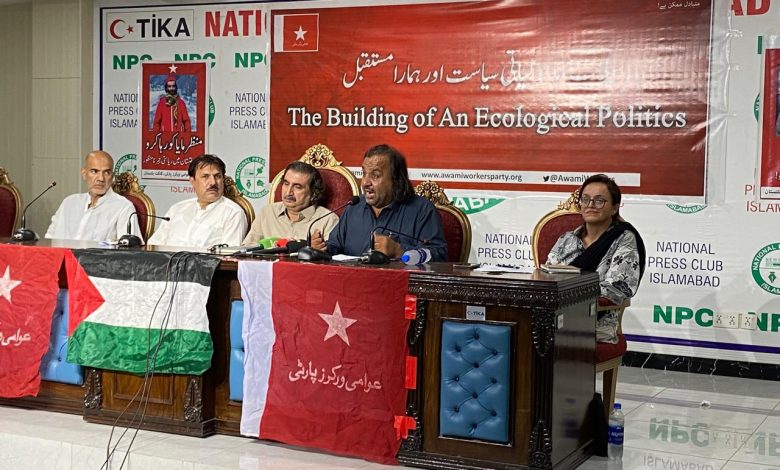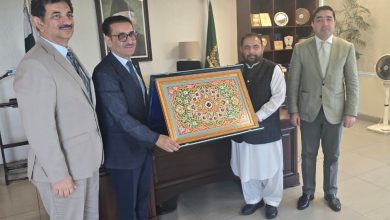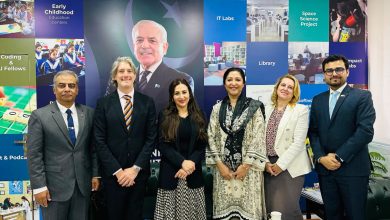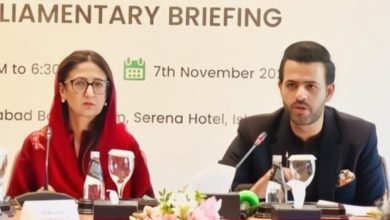Environmental Politics in Pakistan and Workers’ Struggle

Speakers at a seminar organized by the Awami Workers Party in Islamabad blamed recent devastating floods not on nature alone but on profit-driven development policies, state negligence and unregulated commercial interests, and called for a unified “environmental politics” to protect workers, marginalized communities and ecosystems. The event drew students, progressive activists, slum residents, intellectuals and citizens from the twin cities and across Pakistan, who voiced alarm at the scale of environmental and social harm linked to current development models.
The panel, which included Bakshal Thalhu, Asim Sajad, Baba Jan, Neelum Nigar, Zubair Torwali and Toba Syed, argued that the 2025 floods — like those in 2022 — are the product of neoliberal development priorities and profit-seeking actors. While acknowledging that climate change and rising temperatures contribute to extreme weather, speakers said the severity of recent disasters has been amplified by unregulated construction, deforestation, mining, and extraction carried out by timber and real-estate mafias, hotel owners, mining companies and even state-connected contractors such as FWO, NLC and firms operating under so‑called green tourism initiatives.
Panelists rejected the notion that building large dams is a straightforward solution to flooding. They warned that big water projects historically have devastated the Indus delta, increased salinity, displaced working-class communities and intensified other environmental harms. They also argued that such projects deepen the country’s external debt burden, citing the Diamer-Bhasha dam’s estimated multi‑billion-dollar cost as an example of how megaproject financing can exacerbate economic vulnerability.
Speakers criticized political and intellectual circles for remaining preoccupied with power struggles and short-term optics rather than addressing structural causes of environmental collapse. They accused the government of staging relief photo-ops while simultaneously soliciting international climate aid, and said the hybrid regime has little interest in changing a development model that protects a profit-seeking elite. According to the presenters, state officials too often benefit by dispossessing working people of land, forests, minerals and water, deepening social and economic injustice.
As an alternative, the Awami Workers Party called for an inclusive environmental politics that places the needs of working people at its center, ends exploitation of marginalized regions, and rejects imperialist loans and conditionalities. The speakers urged all democratic and progressive forces to unite around a comprehensive economic and political program focused on social and ecological justice — a platform they said is especially important for the country’s large population of young people under 25, who will face the brunt of worsening environmental crises.




